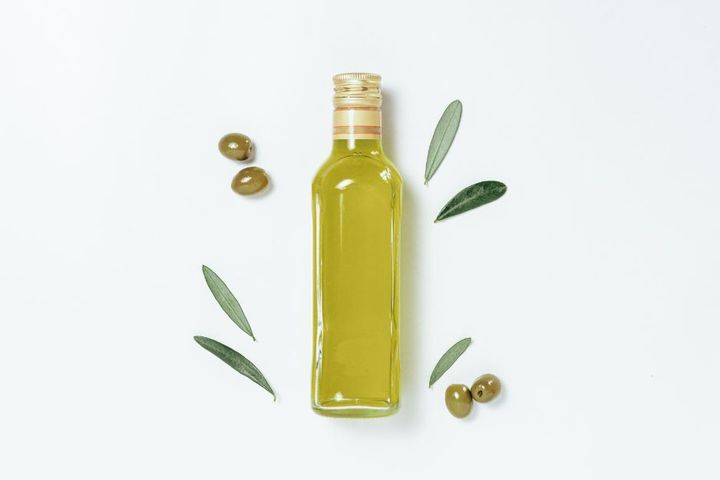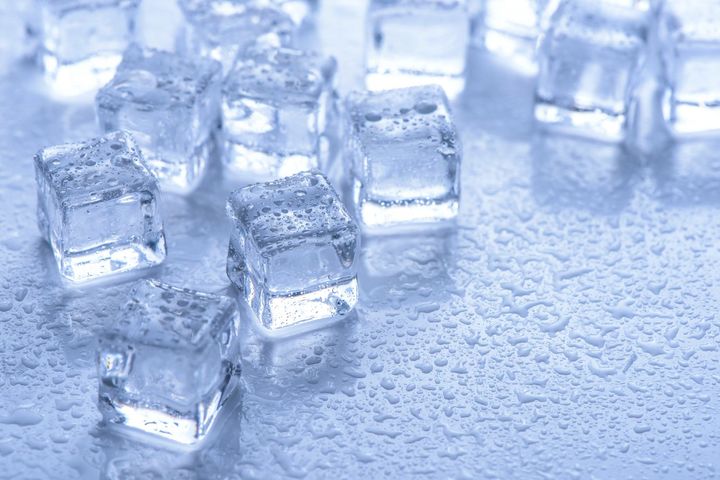The Ultimate Guide to What You Can Eat on a Keto Diet

Are you considering going on a ketogenic diet but don't know where to start? Read on, you are in the right place.
In this blog post, we will define the ketogenic diet and introduce a keto-friendly food list that will help you reach your weight loss goals and improve your overall health.
On a keto diet, you will be consuming a low amount of carbohydrates and a high amount of healthy proteins and fats.
This diet forces your body to burn fat for energy instead of carbohydrates, resulting in weight loss and improved energy levels.
Our guide will provide you with a comprehensive list of foods that are low in carbs and high in healthy fats, so you can easily plan your meals and snacks.
What is a Ketogenic Diet?
A keto diet is a low-carb but high in protein and high in fat diet that has been shown to be effective for weight loss, improving certain health conditions, and increasing energy levels.
The goal of a keto diet is to shift your body into a state of ketosis, where it burns fat for fuel instead of burning glucose for fuel.
On a keto diet, you will significantly reduce your carbohydrate intake and increase your protein and fat intake. This forces your body to start burning fat as its primary source of energy, which can lead to weight loss and other health benefits.
When following a keto diet, you will typically consume no more than 20-50 grams of carbohydrates per day.
This is a lot less than the amount of carbohydrates you would consume on a traditional western diet but this is what keeps your body in a state of ketosis (which is the goal of the keto diet).
Besides that, you will be able to eat lots of nutritious foods so you won't be hungry!
Some of the foods that are typically consumed on a keto diet include:
- Meat and poultry
- Fish and seafood
- Eggs
- Dairy products such as cheese, butter, and cream
- Nuts and seeds
- Non-starchy vegetables such as spinach, kale, and broccoli
It is important to note that not all fats are created equal. On a keto diet, you should focus on consuming healthy fats such as those found in avocados, olive oil, and nuts.
You should also avoid processed foods and foods high in sugar.
Overall, a keto diet can be a healthy and effective way to lose weight and improve your health.
What Are the Benefits of the Keto Diet?
The keto diet has become increasingly popular in recent years due to its numerous benefits. Here are some of them:
- Weight loss: One of the most significant benefits of the keto diet is weight loss. When you reduce your carbohydrate intake, your body enters a metabolic state called ketosis, where it burns fat for energy instead of glucose. This can lead to rapid weight loss, especially in the first few weeks of the diet.
- Improved heart health: The keto diet can also improve heart health by reducing triglyceride levels, increasing HDL cholesterol levels, and lowering blood pressure. These factors can all contribute to a decreased risk of cardiovascular disease.
- Better blood sugar control: The keto diet can also be beneficial for people with diabetes or insulin resistance. By reducing carbohydrate intake, the body requires less insulin to process glucose, leading to improved blood sugar control.
- Reduced inflammation: The keto diet has been shown to reduce inflammation in the body, which can have numerous health benefits. Chronic inflammation has been linked to a variety of health problems, including heart disease, cancer, and Alzheimer's disease.
- Improved mental clarity: Some people report improved mental clarity and focus on the keto diet. This may be due to the fact that the brain can use ketones (produced during ketosis) for energy instead of glucose.
While the keto diet may not be suitable for everyone, it can be a beneficial way to improve your health and well-being.
Foods You Can Eat on the Keto Diet
When following a keto diet, it's important to focus on consuming foods that are high in healthy proteins and fats and low in carbohydrates. Here are some of the best foods to eat on a keto diet:
Meat and Poultry
Meat and poultry are excellent sources of protein and healthy fats, making them a staple in a keto diet.
Choose grass-fed and organic meats whenever possible, as they tend to be higher in nutrients and healthier for the environment.
Also, meat products are rich in b vitamins which helps increase and sustain high energy levels. Some good options include:
- Grass-fed beef
- Grass-fed lamb
- Free range pork
- Free range chicken
- Free range turkey
- Free range eggs
Fish and Seafood
Fish and seafood are also great sources of protein and healthy fats, and many types are low in carbohydrates. Some good options include:
- Salmon
- Tuna
- Shrimp
- Lobster
Dairy Products
Dairy products are a good source of healthy fats and protein, but they can also be high in carbohydrates. Choose full-fat dairy products whenever possible, and avoid flavored or sweetened varieties. Some good options include:
- Yoghurt
- Cheese
- Heavy cream
- Sour cream
- Butter
Nuts and Seeds
Nuts and seeds are great sources of healthy fats and fiber, but they can also be high in carbohydrates. Choose nuts and seeds that are low in carbs, and avoid flavored or sweetened varieties. Some good options include:
- Almonds
- Walnuts
- Macadamia nuts
- Chia seeds
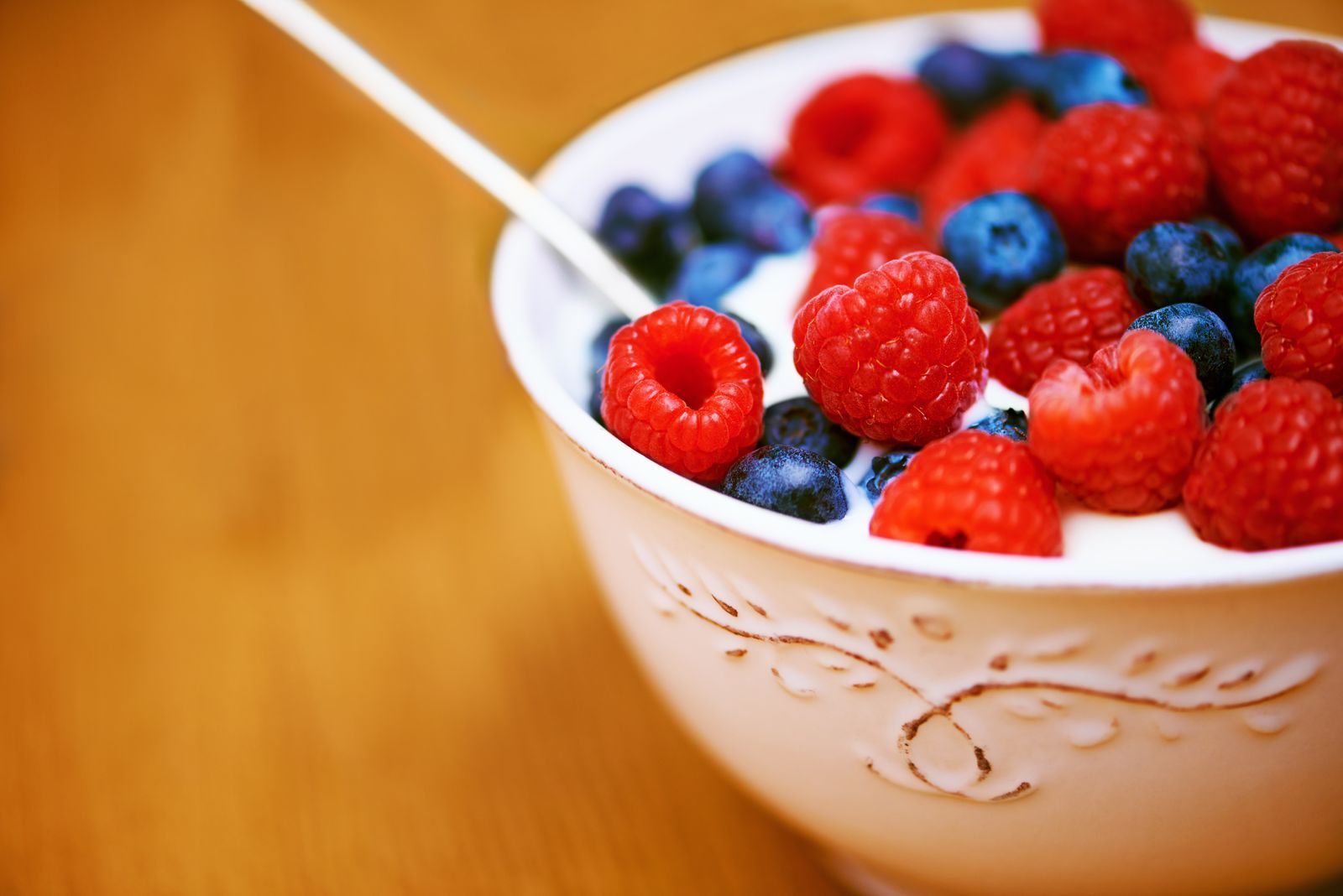
Low-Carb Vegetables
Vegetables are an important part of a healthy diet, but some are higher in carbohydrates than others. Choose vegetables that are low in carbs and high in fiber, and avoid starchy vegetables like potatoes and corn. Some good options include:
- Broccoli
- Cauliflower
- Spinach
- Kale
Vegetables are also great sources of vitamins and minerals. Try to increase your daily consumption of vegetables regardless of the diet you are following. For tips to eat more vegetables with every meal check out our blog post - Veggie Up: 12 Creative Ways to Eat More Vegetables.
Healthy Fats and Oils
Healthy fats and oils are an important part of a keto diet, and can help you feel full and satisfied. Choose fats and oils that are high in monounsaturated and polyunsaturated fats, and avoid trans fats and hydrogenated oils. Some good options include:
- Olive oil
- Coconut oil
- Avocado oil
- Butter
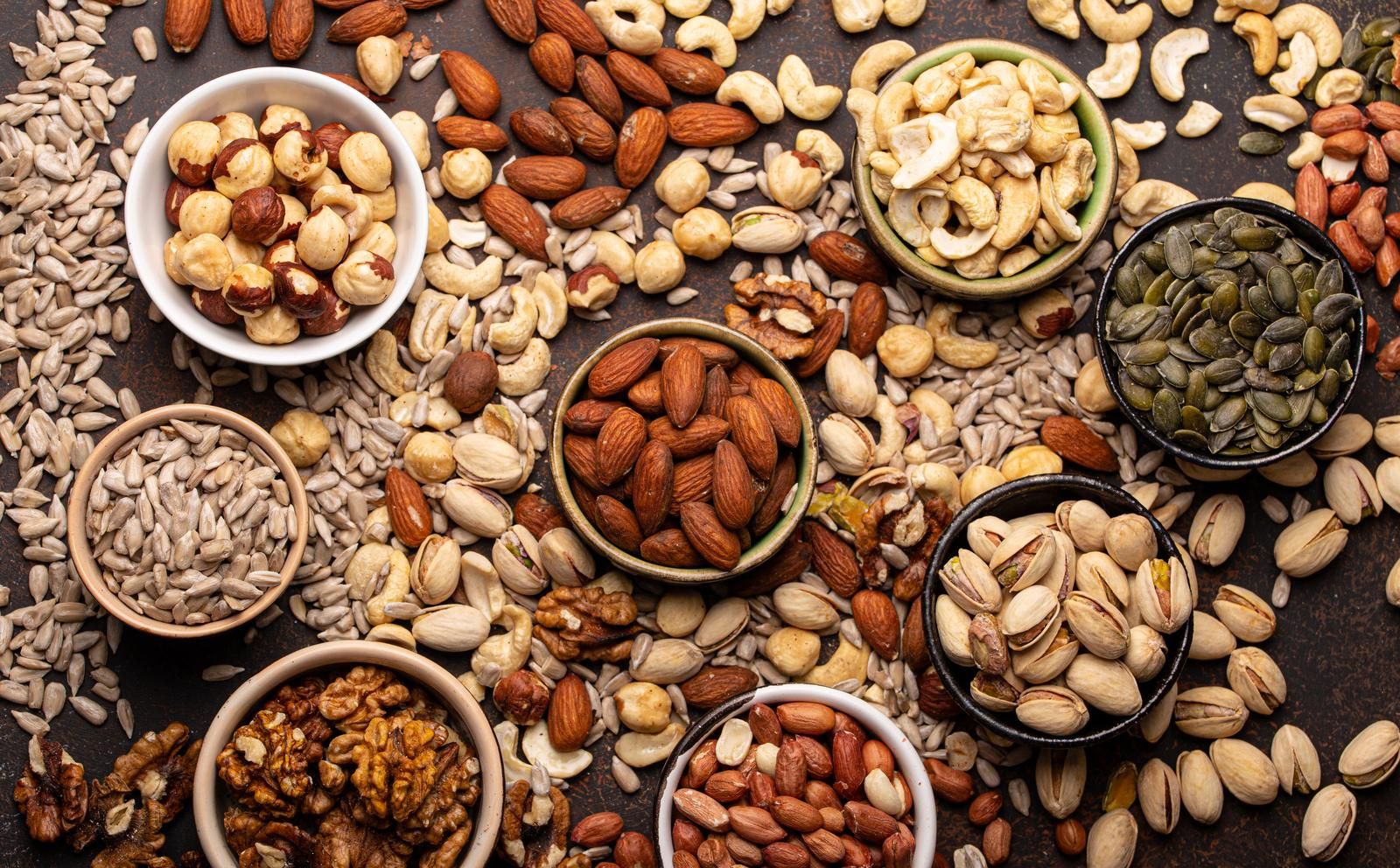
Foods to Avoid on a Keto Diet
When following a keto diet, it's important to avoid certain foods that are high in carbohydrates, as they can kick you out of ketosis and prevent you from reaching your weight loss goals. In this section, we'll go over the top foods to avoid on a keto diet and why.
Sugary Foods and Beverages
Sugar is a big no-no on a keto diet. This includes not only table sugar, but also honey, maple syrup, and other natural sweeteners. You'll also want to avoid sugary beverages, such as soda, sports drinks, and fruit juice. These drinks are often high in carbohydrates and can quickly derail your progress on a keto diet.
Grains and Starches
Grains and starches are also off-limits on a keto diet. This includes bread, pasta, rice, whole grains, and other types of grains, as well as starchy vegetables like potatoes, sweet potatoes, and corn. These foods are high in carbohydrates and can easily push you over your daily carb limit.
Fruits and High-Carb Vegetables
While fruits and vegetables are generally considered healthy, some are too high in carbohydrates to be eaten in large quantities on a keto diet. Fruits like bananas, grapes, and oranges are particularly high in carbs, as are starchy vegetables like peas and carrots. Stick to low-carb fruits like berries and non-starchy vegetables like leafy greens, broccoli, and cauliflower.
Processed Foods and Snacks
Processed foods and snacks are often high in carbohydrates and should be avoided on a keto diet. This includes chips, crackers, and other packaged snacks, as well as processed meats like hot dogs and sausages. Opt for whole, unprocessed foods instead.
Unhealthy Fats and Oils
While fats are an important part of a keto diet, not all fats are created equal. Avoid unhealthy fats like trans fats and vegetable oils, which can increase inflammation in the body. Stick to healthy fats like avocado, olive oil, and coconut oil.
What Can You Drink on Keto Diet?
When it comes to the keto diet, what you drink is just as important as what you eat. We need to be mindful of what we drink because a lot of drinks have added sugars and sweeteners that are not compatible with a ketogenic diet.
Here are some keto-friendly drinks that we can enjoy:
- Water: This is the best option for staying hydrated. We can add some lemon or lime to give it some flavor.
- Coffee and tea: These drinks are keto-friendly as long as we don't add sugar or milk. We can use heavy cream or coconut oil instead of milk.
- Sparkling water: This is a great option for those who want something carbonated. We can add some lemon or lime for flavor.
- Unsweetened almond milk: This is a low-carb alternative to milk. We can use it in our coffee or tea.
- Low-carb smoothies: We can make smoothies with low-carb fruits and vegetables like berries, avocado, and spinach. We can use unsweetened almond milk or coconut milk as the base.
Here are some drinks that we should avoid:
- Soda: Regular soda is high in sugar and carbs. Diet soda is low in sugar but can still kick us out of ketosis.
- Juice: Most fruit juices are high in sugar and carbs. We can have small amounts of lemon or lime juice for flavor.
- Sweetened tea: Tea is keto-friendly, but sweetened tea is not. However, we can use a sugar substitute like stevia or erythritol instead of sugar.
- Alcohol: Most alcoholic drinks are high in carbs. We can have low-carb options like wine, light beer, and distilled spirits. We need to be mindful of our alcohol intake because it can affect our ketosis.
Remember to read the labels of drinks to make sure they are low in carbs. We should also drink plenty of water to stay hydrated and support our weight loss goals.
Tips for Meal Planning on a Keto Diet
Meal planning is an essential part of following a keto diet. It helps us stay on track, save time, and avoid making poor food choices. Here are some tips to help you plan your keto meals:
- Keep it simple: Don't overcomplicate your meal planning. Focus on simple, whole foods that are high in healthy fats and low in carbs. This will make it easier to stick to your plan and avoid feeling overwhelmed.
- Plan ahead: Take some time each week to make a preferred keto food list and plan your meals. This will help you avoid making impulsive food choices and ensure that you have everything you need on hand.
- Batch cook: Cooking in batches can save you time and make meal prep easier. Consider cooking a large batch of chicken, beef, or vegetables that you can use throughout the week or freeze for later.
- Track your macros: Keep track of your macronutrient intake to ensure that you are staying within your daily carb, protein, and fat goals. There are many apps and websites that can help you track your macros.
- Experiment with new recipes: Don't be afraid to try new keto-friendly recipes. This can help you avoid getting bored with your meals and keep you motivated to stick to your plan.
By following these tips, you can make meal planning on a keto diet a breeze. Remember to keep it simple, plan ahead, and track your macros to ensure that you are staying on track with your goals.
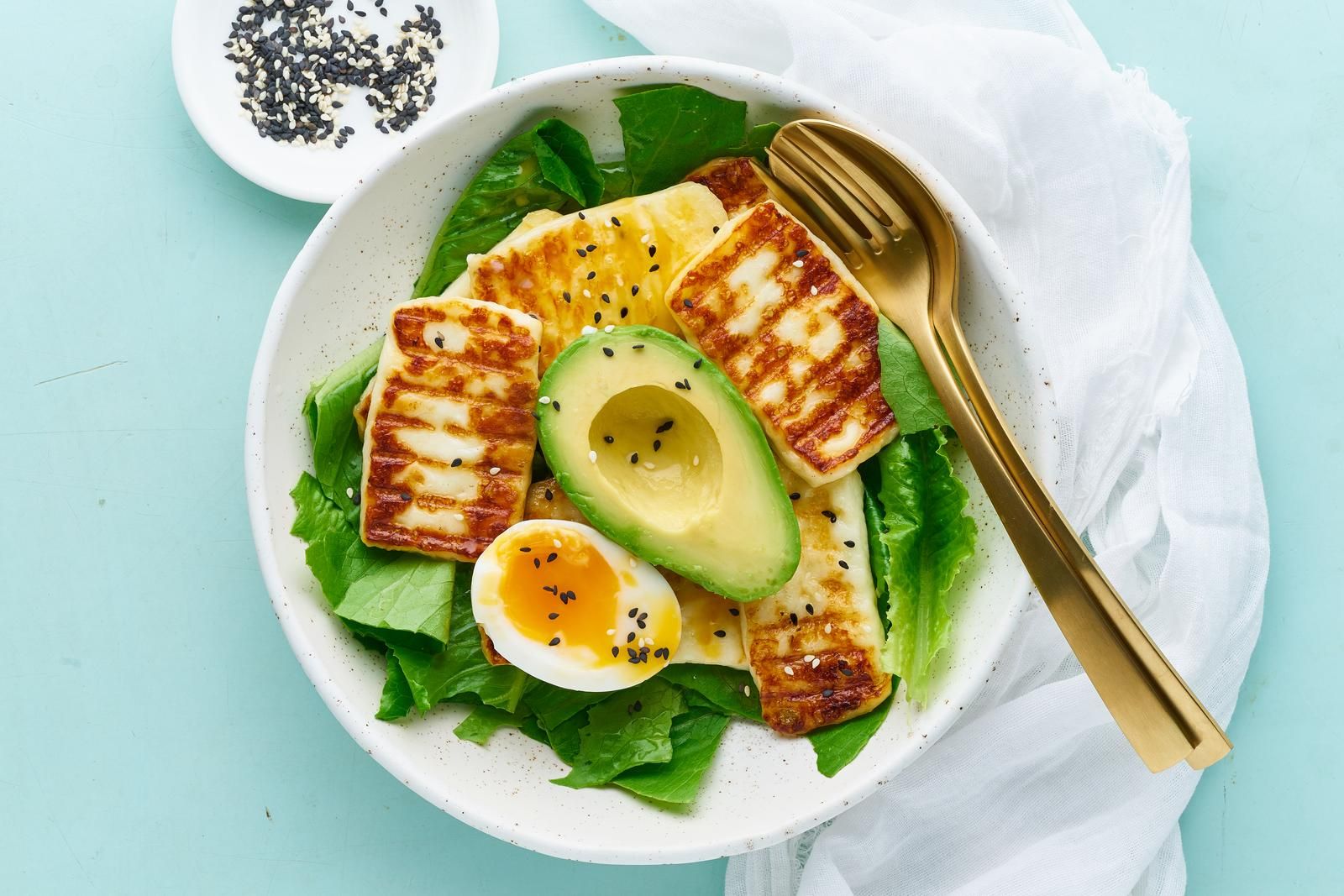
Sample Keto Meal Plan
Planning meals on a keto diet can be challenging, especially if you're new to the lifestyle. However, with a bit of preparation and creativity, you can enjoy delicious and satisfying meals while keeping your carb intake low.
Here's a sample keto meal plan for a day:
| Meal | Food | Net Carbs |
|---|---|---|
| Breakfast | Scrambled eggs with avocado and bacon | 5g |
| Lunch | Grilled chicken with mixed greens, olive oil, and feta cheese | 7g |
| Dinner | Salmon with asparagus and garlic butter | 6g |
| Snack | Almonds and string cheese | 2g |
As you can see, this meal plan is low in carbs and high in healthy fats and protein. It's important to note that the amount of carbs you can consume on a keto diet may vary depending on your individual needs and goals.
When planning your meals, focus on whole, unprocessed foods such as meat, fish, eggs, non-starchy vegetables, nuts, and healthy fats. Avoid processed and high-carb foods like grains, sugar, and starchy vegetables.
Frequently Asked Questions
How many carbs can you eat on keto diet?
Typically, the keto diet involves consuming no more than 20-50 grams of carbohydrates per day. This is because the goal of the keto diet is to enter a state of ketosis, where the body burns fat for fuel instead of carbohydrates. Consuming too many carbs can kick the body out of ketosis and prevent weight loss.
How do you start with keto diet?
Starting the keto diet can be overwhelming, but it doesn't have to be.
The first step is to calculate your macronutrient needs. This involves determining how many grams of protein, fat, and carbohydrates you should consume each day based on your weight, height, and activity level.
Once you have your macronutrient goals, you can start planning your meals and choosing foods that fit within your daily limits. It's important to gradually reduce your carb intake and increase your fat intake to help your body adjust to the new diet.
Can you lose weight on the keto diet?
Yes, many people have successfully lost weight on the keto diet. This is because the diet encourages the body to burn fat for fuel instead of carbohydrates, which can lead to significant weight loss. However, it's important to note that weight loss results may vary and the diet may not be suitable for everyone.
What sweetener can use on the keto diet?
When it comes to sweeteners on the keto diet, it's important to choose options that are low in carbs and don't spike blood sugar levels. Some popular sweeteners that are keto-friendly include stevia, erythritol, and monk fruit. It's important to read labels and avoid sweeteners that contain added sugars or high amounts of carbs.
Final Thoughts
Starting a keto diet can be a challenging but rewarding experience. It requires a significant shift in the way we eat, but it can lead to significant weight loss and improvements in overall health. By following the guidelines of a high-fat, low-carb diet, we can enter a state of ketosis that helps our bodies burn fat for energy.
As we've outlined in this guide, there are many delicious and satisfying foods we can eat on a keto diet. We can enjoy healthy fats like avocados, nuts, and olive oil, as well as protein-rich foods like meat, eggs, and cheese. We can also incorporate low-carb vegetables like spinach, broccoli, and cauliflower into our meals.
It's important to remember that the key to success on a keto diet is to stick to the guidelines and avoid foods that are high in carbs. We should also make sure to stay hydrated and incorporate plenty of fiber into our diets to keep our digestive systems healthy.
With a little bit of planning and preparation, we can enjoy a wide variety of delicious and satisfying meals on a keto diet.
By following the guidelines and incorporating healthy fats, protein, and vegetables into our meals, we can achieve our weight loss and health goals while still enjoying the foods we love.
References:
Ketogenic Diet Benefits to Weight Loss, Glycemic Control, and Lipid Profiles in Overweight Patients with Type 2 Diabetes Mellitus: A Meta-Analysis of Randomized Controlled Trails https://www.semanticscholar.org/paper/fd5bc99dea11c5209e590eee2f3f0d23a22866ff Authors: Chong Zhou, Meng-die Wang, Jiling Liang, Guomin He, Ning Chen Year: 2022
Ketogenic diet benefits body composition and well-being but not performance in a pilot case study of New Zealand endurance athletes https://www.semanticscholar.org/paper/e3412b751b7815332f7ad26ad66d4bbfd63f0fa4 Authors: C. Zinn, M. Wood, Mikki Williden, Simon Chatterton, E. MaunderYear: 2017
Ketogenic Diet: Its Benefits & Overall Effects on Adults objective
https://www.semanticscholar.org/paper/7e39834a88e632152288cb421347ba929f41f0ed Year: 2021
Effect of ketogenic diet on biochemical and anthropometric parameters https://www.semanticscholar.org/paper/4d8146d6a529d91a6aace589ed782b0c1244092f Authors: Bazilina Majid, Anam Maqsood, M. Majid, Z. Ahmad, Asmat Mehmood, Syed Shahmeer RazaYear: 2022
Mental, emotional, and behavioral effects of ketogenic diet for non-epileptic neuropsychiatric conditions https://www.semanticscholar.org/paper/355f2424892b77c79843580f2e68464f20f5c1f1Authors: R. Grigolon, F. Gerchman, A. Schöffel, E. Hawken, H. Gill, G. Vazquez, R. Mansur, R. McIntyre, E. Brietzke Year: 2020
